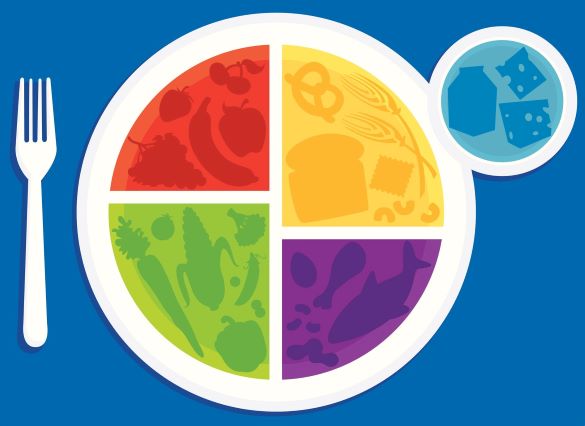
February is American Heart Month, a month dedicated to raising awareness about cardiovascular health and encouraging heart disease prevention.
Why focus on heart health?
Cardiovascular diseases, including heart disease and stroke, are the leading causes of death in the U.S.
There are many risk factors for heart disease, including high blood pressure, diabetes, smoking, obesity, unhealthy diet, physical inactivity and more. Focusing on heart health can improve your long-term well-being and enhance your energy levels, cognitive function and engagement in everyday activities.
Heart healthy nutrition tips
A heart-healthy diet also supports the function of our brains, kidneys and other vital organs.
Taking time to care for your heart can be challenging as you go about daily life. But, according to Northside Hospital's team of registered dietitians, it's easier than you think to show your heart the love it deserves each day. They offer the following five heart-healthy recommendations.
 Balance and portion size
Balance and portion size
Ensure that protein, fruits, vegetables, grains, dairy and healthy fats are balanced at each meal. Try to include nutrient-dense foods to provide essential vitamins and minerals. Nutrient-dense foods include salmon, kale, potatoes, blueberries, quinoa, nuts, etc. Be conscious of portion sizes by using smaller plates, listen to your body’s hunger cues and use MyPlate.gov to help divide your plate.- Paint your plate
Try to consume a rainbow of fruits and vegetables to consume various nutrients. This can add visual appeal, as well as nutritional value. The more colors on your plate, the more nutrients you are eating. These nutrients include vitamin C, beta-carotene, folate, iron and more. Antioxidants can also be found in fruits and vegetables, which help neutralize harmful molecules in the body. Coloring your plate is an easy way to ensure you eat a nutrient-filled meal! - Focus on fiber
Soluble fiber can be found in oats, beans and fruits, which helps lower total cholesterol levels and the “bad” LDL cholesterol. Eating more fiber can also help maintain healthy blood pressure and reduce inflammation. Fiber can also promote weight management by endorsing a feeling of fullness. Some foods high in fiber include fruits, vegetables, grain, beans, peas, lentils and more. - Unveil unhealthy fats
Saturated fat comes from animal products like dairy, meat and poultry. Limiting our saturated fat intake can help reduce our blood cholesterol and lower the risk of coronary artery disease. To reduce our intake, we could start buying low-fat food items, checking the nutrition facts label, switching to grilled foods, substituting butter for olive oil and more. Saturated fat, including butter, milk or the fat inside or around meat, is often found in solid forms at room temperature. Some examples of foods high in saturated fat are cheeses, hot dogs, bacon, French fries, regular ground beef, fried dishes, whole milk and full-fat dairy foods and desserts. - Cut the sodium
Lowering the amount of sodium we consume promotes a heart-healthy diet and lifestyle. When in the grocery store, check the food labels and choose lower sodium options. Try sticking with fresh or frozen fruits and vegetables and decrease the amount of eating out. Fast food and sit-down restaurants often have very high-sodium meals. Still, you can always opt for healthier alternatives or ask the server or waiter for food with no salt. You can also become familiar with a low-sodium diet, the DASH diet or an overall heart-healthy diet.
Overview
A heart-healthy diet focuses on consuming nutrient-rich foods that support cardiovascular well-being. It emphasizes fruits, vegetables, whole grains, lean proteins and healthy fats while limiting saturated fats, sodium and added sugars. Adopting a heart-healthy diet can lower blood pressure, cholesterol levels and overall cardiovascular health. Let’s love our hearts this month!
Find more healthy tips from Northside Hospital Nutrition Services.
